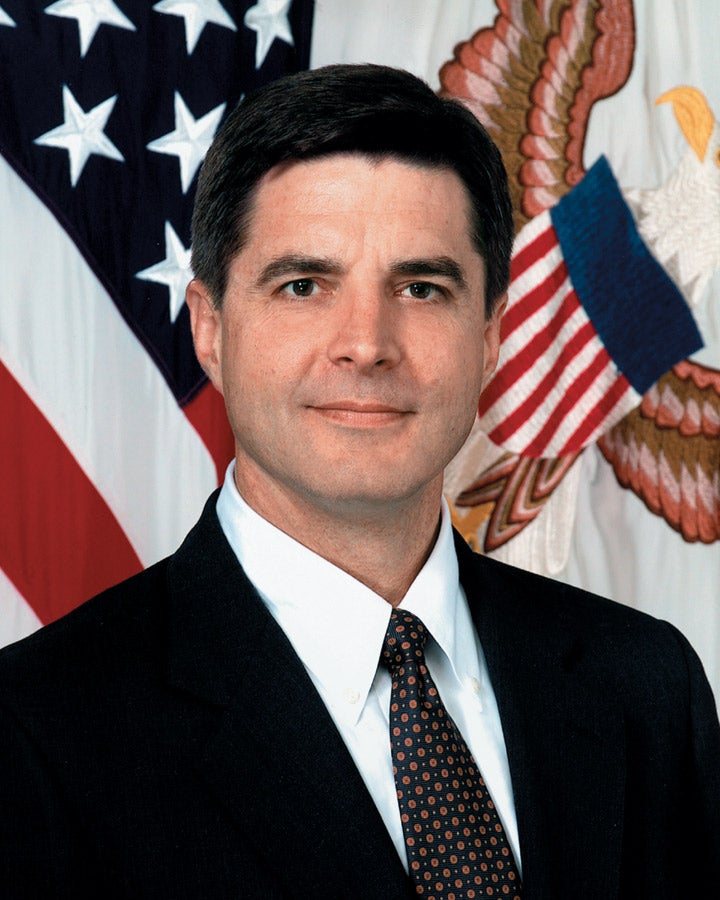War has a way of finding Jim Haynes ’83. Just six months after President George Bush appointed him general counsel of the Army in 1990, Iraqi President Saddam Hussein invaded Kuwait, sparking the Persian Gulf War.
Then, after an eight-year hiatus from government during the Clinton administration, another president named Bush appointed Haynes to an even bigger Pentagon post: general counsel of the U.S. Department of Defense. He was sworn in just four months before the September 11 attacks.
In fact, Haynes was in the Pentagon that morning when American Airlines Flight 77 slammed into the building, claiming 184 victims. “It was very touch and go in the first couple of hours because the smoke was pretty dense,” recalled Haynes, who spent the remainder of the day and night working from the Pentagon’s command center.
Since that morning, Haynes has devoted nearly every waking hour to overseeing legal and policy matters surrounding the war on terrorism. He has done this while remaining focused on what he was originally brought back to the Pentagon to do: help Defense Secretary Donald Rumsfeld reorganize one of the world’s largest and most hierarchical organizations.
“We are prosecuting the war very vigorously,” said Haynes, “but we are also examining the way this place is put together and the way it operates.”
Haynes argues that the demands of the current conflict actually reinforce the need to restructure the Defense Department, which, he points out, is still set up in much the same way as it was during the Cold War. “The world has changed,” he said, stressing that the Pentagon must change “the way we buy things, the way we manage decision making, the way we engage with the rest of the world. We’ve got to become more nimble, we’ve got to become more efficient, and we’ve got to become smarter.”
As top lawyer in a department of more than 6,500 attorneys, Haynes is charged with overseeing the military’s prosecution of those captured and detained in the new war. The United States is currently holding more than 500 people as captives–both American citizens and foreign nationals. While some have criticized the Bush administration’s treatment of the prisoners and have questioned whether their civil liberties have been violated, Haynes doesn’t flinch from what he sees as a responsibility to defend the country.
“We are being very careful and deliberate in what we do,” he said. “We are confident that what we’re doing is lawful and is consistent with the Constitution. There is a first priority here right now that we think is appropriate, and it’s to protect the American people and to prosecute the war.”
Haynes has brought both private-sector and military experience to his current job. After graduating from HLS, he enrolled in active duty in the Army, where he served as a captain. Between his two Bush administration appointments, he worked in the Washington, D.C., office of Jenner & Block and later as general counsel for General Dynamic Corp.’s Marine Group.
For now, Haynes is focused “with white-hot intensity” on the demands of his Pentagon post.
“There were a number of people killed here. On a very personal level, that’s a motivator,” he said. “Equally important is the fact that we’re sending young men and women out all around the world . . . who are in just as much peril and sometimes lose their lives. So it’s very serious business.”
